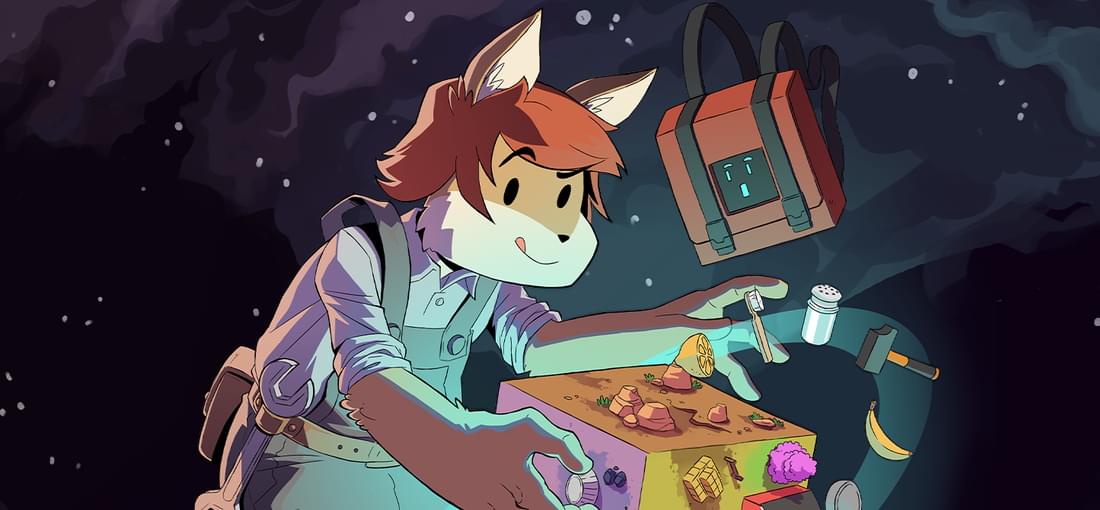


What you think of Agent A will depend entirely on whether you find yourself grinning at a sentence like "discover the code to open the box, where you find the gold key to unlock the gold door, behind which is a safe protected by lasers that you need to figure out a way to switch off". Etc. (That was not a spoiler, by the way.) In other words, it's a good solid point-and-click adventure. The puzzles are tricky enough to tickle your brain cells and make you feel smart for solving them, but not so hard as to keep you totally stumped for long. Investigate everything, keep your eyes peeled, pay attention, and you'll find it a fun and fast-moving romp. The retro style is perfect for the James Bond / Avengers superspy theme, and also ensures that all the necessary objects and controls are easy to see and identify. The game also has a good sense of humour as well as style, and Agent A's running commentary is well worth paying attention to. Looking forward to a sequel!

Human Resource Machine is at heart a piece of educational software. It sets out to teach you the basics of programming, and it does this fairly well. Each level introduces a new concept, and you're not going anywhere until you can get your head round it and produce a piece of code that proves your understanding. As a game... well, it's not one. You can think of the levels as puzzles, but by the time you're designing complex programs and keeping an annotated list of commands for reference, any puzzle-solving feeling has faded away. It's a series of lessons and tests. There is a thin storyline running in the background, but it's negligible and there's nothing you can do to affect it. Given that the program is straightforward education, it's a shame that there's so little help or explanation offered beyond one small hint per level. Once you've amassed your vocabulary of commands and have begun trying to crack harder problems, more guidance would be welcome. There's a general philosophy of throwing you in at the deep end and hoping you figure out how to swim. Overall verdict: What it sets out to do, it does pretty well. I'm mainly disappointed because I bought it under the assumption that it was a strategy game, which it ain't. Approach it as a gamified programming course and, assuming that's what you want, you'll probably enjoy the experience.

FixFox is a lovely game with an uplifting message in which you're given the task of helping yourself by helping others. It's intensely non-violent, if that makes sense – you spend most of your time doing good things for nice people, and occasionally helping people (maybe even yourself) come to terms with past errors. The gameplay is gentle, involving some exploration (or a lot of exploration if you enjoy it), some conversation, and some simple puzzle-solving. The pace is entirely up to you – push through the main quest line as fast as you can, or take time out to potter from town to town, take in the surroundings, and do odd jobs for random citizens. My main reservation is that the game is extremely easy, and very hand-holdy on top of it. Some of the hand-holding can be avoided – for instance, activating an item will mark on your map the location where it is to be used; if you don't activate the thing, you must rely on your own exploration and observations to find the place. The bulk of the game also becomes rather repetitive, and you can see yet another "do four things" mission coming from miles away. On the other hand, the low difficulty is a bonus in a way, as I've been able to recommend it to non-gamer friends in the knowledge that they won't get frustrated. It also means you can progress steadily through the game without losing track of the storyline, which is by far the most important part of it. The feeling of repetition can be eased at any time by simply taking a break and pottering around until you're ready to return to the main game. The end... and other end... and other, other end... is surprising, satisfying, and moving. I'm glad I played it all the way through, and parts of it will stick with me. I'll also add that the developer is lovely. I contacted him on Facebook about a problem that nearly stopped me cold, and he responded quickly, helpfully, and with good humour. Thank you!

I don't often buy a game as soon as it comes out, but was too excited about this one to wait! It's just as good (and creepy) as promised. No hand-holding here. You really do need to use proper observation and logical deduction to work out what happened aboard the Obra Dinn, and I expect things will only get trickier as the game progresses. The violent and sometimes horrible deaths mean it definitely isn't for everyone, but if the trailer appeals to you, you'll probably enjoy the game. The first-person view can be pretty rough on those of us who are prone to motion sickness, but you can slow down the "look" movement in the options, which helps. I'm face-blind and was nervous that I might be forced to identify all the characters by sight. If anyone else is worried about this, it seems to be OK. The logbook includes a large picture of everyone aboard, and you can zoom in on each individual in each death scene to match them against this picture, so they can be identified by location rather than facial features. In the logbook itself, each character is given a pop-up containing all known or deduced information about them.